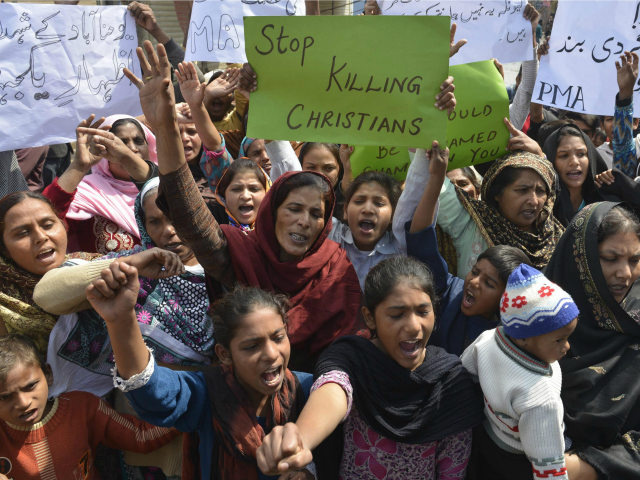In the 37th session of the UN Human Rights Council in Geneva this week, participants were regaled with stories of egregious human rights abuses in Pakistan including systematic persecution of Christians by the Islamic majority.
On Monday, witnesses and human rights representatives told the council that blasphemy laws are being used as a weapon by Islamic fundamentalists against the Christian minority in the country.
One speaker at the meeting, Shazia Khokhar, a Christian woman activist from Pakistan now living in Switzerland, said that the very name of Islamic Republic of Pakistan describes the way “religious minorities are systematically persecuted.”
“The Islamic Republic is a name given to several states that are officially ruled by Islamic law,” Khokhar stated. “In Pakistan, once an individual is accused of blasphemy, he is presumed guilty and the law fails to safeguard against people willing to use violence.”
The blasphemy law “creates an atmosphere of religious intolerance and has contributed to the institutionalisation of discrimination against religious minorities,” she added.
Perhaps Pakistan’s highest profile blasphemy case has been that of Asia Bibi, a Christian woman who was sentenced to death after being found guilty of blasphemy while working in the fields in 2009. In 2014, the Lahore High Court upheld the death sentence.
“As a poor Christian, from a low caste, Asia Bibi was among the most vulnerable to get accused,” Khokhar noted, adding that the legal system, which is theoretically designed to protect the innocent, “failed to protect her in any way.”
UN officials also heard from another Pakistani Christian activist, Salma Bhatti, who spoke of systematic abuses suffered by young Christian women in Pakistan.
“There are many young Christian girls in Pakistan who are being kidnapped and forcibly married,” she said, while adding that the women often disappear without a trace.
Outside the UN office, a special screening of short films at Broken Chair this week underscored the plight of the Christian minority in Pakistan and Pakistan occupied Kashmir (PoK) as victims of Islamic extremism.
At only two to three percent of Pakistan’s total population, Christians are particularly vulnerable to persecution under Pakistan’s blasphemy laws, which date back to the military dictatorship of General Muhammad Zia ul Haq.
In 1980, Pakistan’s Penal Code was amended to criminalize derogatory remarks against any Islamic personage, with a punishment of three years in prison. Two years later, a clause was added prescribing life imprisonment for willful desecration of the Quran and, in 1986, another clause was added to include blasphemy against the Prophet Mohammed as a crime punishable by death or life imprisonment.
For years, the U.S. Commission on International Religious Freedom (USCIRF) pressed the State Department to issue a stronger condemnation of Pakistan for its grave violations of religious freedom, advising it to add Pakistan to its list of Countries of Particular Concern (CPCs).
In 2015, USCIRF chairman Robert P. George urged the State Department “to further expand its CPC list to reflect the severe violations occurring in other countries, such as Pakistan, which USCIRF has called the worst situation in the world for religious freedom for countries not currently designated by the U.S. government as CPCs.”
Last January, the U.S. State Department announced that it would finally add Pakistan to its Special Watch List for severe religious freedom violations, citing the egregious abuse of Christians, Hindus, Ahmadi Muslims, and other minorities in the country.
Soon after, the U.S. State Department warned Americans against travel to Pakistan, citing Islamabad’s enforcement of the nation’s strict blasphemy laws, which have primarily targeted Christians and other minorities in the Sunni Muslim-majority country.
“Sectarian violence remains a serious threat throughout Pakistan, and the Government of Pakistan continues to enforce blasphemy laws. Religious minority communities have been victims of targeted killings and accusations of blasphemy,” it said in a statement.
Follow Thomas D. Williams on Twitter Follow @tdwilliamsrome

COMMENTS
Please let us know if you're having issues with commenting.